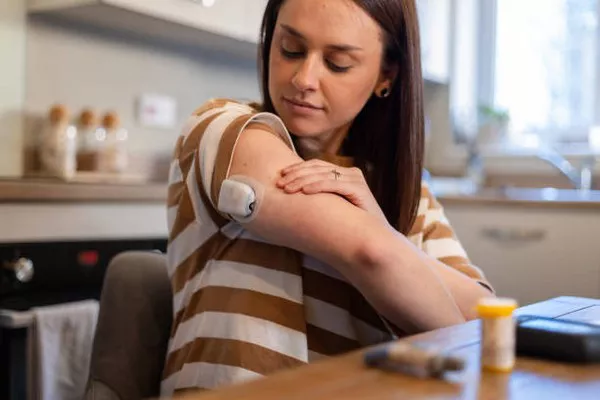The surge in popularity of injectable weight-loss drugs, such as Ozempic, has sparked widespread interest among those seeking to shed excess pounds. While many have seen impressive results, questions about the safety and accessibility of these treatments remain. Are weight-loss injectables suitable for everyone? And how can you ensure you’re using them safely?
We spoke to Dr. Sebastian R. Eid, M.D., FACS, assistant program director of the Minimally Invasive/Bariatric Surgery Fellowship at Hackensack University Medical Center, to break down the key considerations when it comes to injectable weight-loss medications.
FDA-Approved vs. Unapproved Injectables
As demand for weight-loss injectables grows, FDA-approved options like Ozempic have become harder to find. This has led to a rise in online companies promoting low-cost alternatives, often presenting these drugs as available over the counter (OTC). However, as Dr. Eid points out, these online vendors still require a prescription for these products. Importantly, the FDA has not approved any OTC weight-loss injectables.
While online injectables might be more affordable and seemingly easier to access, Dr. Eid warns that “you can’t be sure what you’re getting.” These unapproved versions of weight-loss injectables may not be regulated, and their safety and efficacy are unproven.
Safety Concerns and Risks
FDA-approved weight-loss injectables like Ozempic have undergone extensive testing and are proven to be both safe and effective. On the other hand, non-FDA-approved injectables, while potentially safe, lack the rigorous data supporting their use. Dr. Eid explains, “These alternatives are not backed by the FDA,” meaning their safety has not been confirmed through clinical trials.
The FDA has issued several warnings about unapproved weight-loss injectables, highlighting reports of serious side effects due to incorrect dosages. These adverse reactions can include:
- Nausea and vomiting
- Fainting
- Severe headaches
- Acute pancreatitis
- Gallstones
Some individuals have even required hospitalization after experiencing these side effects.
The Best Way to Obtain Weight-Loss Injectables
Given the uncertainties surrounding online injectables, Dr. Eid strongly recommends consulting with a healthcare provider before starting any weight-loss treatment. “The safest way to obtain weight-loss injectables is through a doctor,” he advises. Primary care physicians can offer guidance on suitable medications, and specialized weight management programs can provide valuable support in areas like nutrition and exercise.
Many insurance providers may stop covering treatments like Ozempic once patients reach their target weight. This is where a comprehensive, multidisciplinary approach to weight loss can make a difference, helping individuals develop the skills to maintain their weight long-term.
Who Should Consider Weight-Loss Injectables?
The FDA has approved weight-loss injectables for individuals with a body mass index (BMI) of 27 or higher, provided they also have a related health condition such as diabetes or high blood pressure. Injectables are also recommended for those with a BMI of 30 or above, regardless of comorbidities.
However, these treatments are not suitable for everyone. Dr. Eid advises against using weight-loss injectables if:
- You have kidney or pancreatic issues
- You are pregnant or breastfeeding
- You have a history of thyroid or endocrine disorders
- You have a family history of thyroid or endocrine cancers
Consult a Doctor Before Choosing Injectables
Although weight-loss injectables may appear to be a quick fix, it is crucial to weigh all your options and discuss them with your healthcare provider. Dr. Eid concludes, “You’re better off working with a doctor to ensure a safe, effective approach.” With online vendors offering tempting deals, it’s important to remember that the safest course of action is to seek professional advice before beginning any weight-loss treatment.
Related Topics:
Is Orlistat Compatible With Other Weight Loss Methods?


